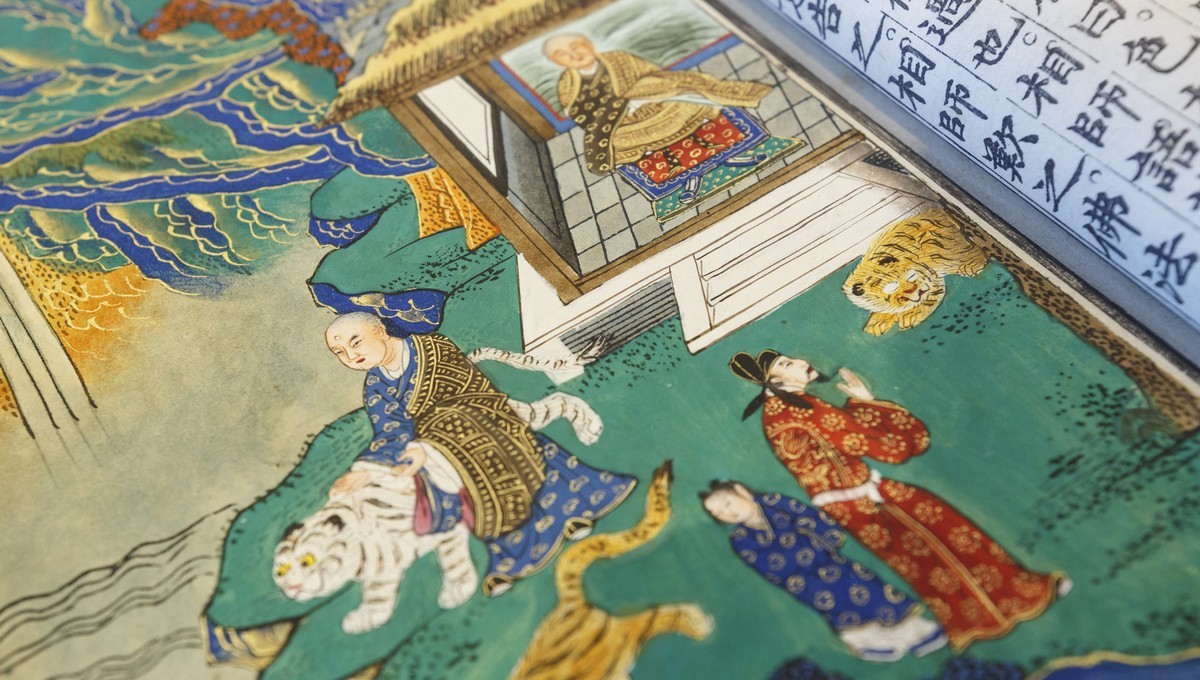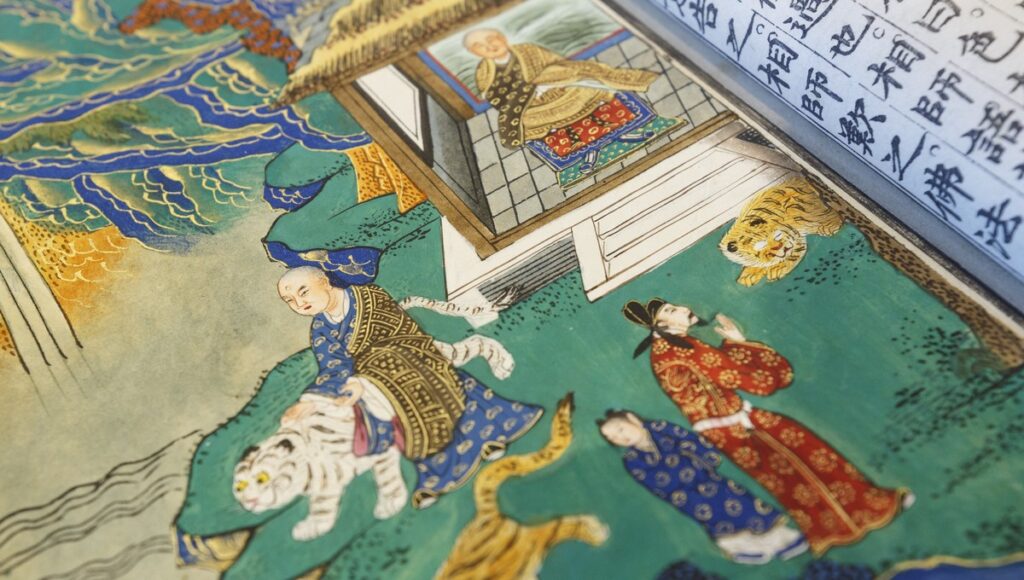Zhou Yi's Philosophy: Yin Yang, I Ching, Bagua

According to Zhou Yi's philosophy, the Dao moves between heaven and earth. The Dao of heaven according to Zhou Yi is embodied in human social relations and penetrates into the Dao of ordinary things that interact with man.
The Tao of Zhou Yi states, “The movement of one yin and one yang is the Tao.” Man begins by fulfilling his nature and fully understanding his destiny. Zhou Yi emphasizes insight into the minute changes of things and reveals the continuity between the mind and events. Zhou Yi clarifies human affairs through understanding the Tao of Heaven. It encourages people to illuminate the Tao of Heaven and carefully reveal the magically transformative patterns of complex human affairs. In this way, people can come to understand the time and space in which they find themselves and expand their ability to manage the changing world.
Zhou Yi philosophy states that everything in the world has both yin and yang. The movement of yin and yang forms the Tao. Yin and yang are the main symbols of Zhou Yi and are usually represented by the two yin-yang fish in the Taiji diagram. Yin and yang mutually contain each other and are capable of transforming from one to the other. The ancients were trying to tell us that all things and events contain yin and yang, which are eternally transforming.
Everything is a continuity between yin and yang, which cannot be seen as a separate opposition. Yin and yang stand in relation to each other. For example, if in front is yang, then behind is yin; if above is yang, then below is yin; if on the left is yang, then on the right is yin. Zhou Yi puts forward a contextualized yin-yang paradigm that is very different from Western models of separate opposite parts
According to Zhou Yi, what follows the development of the moving Dao is good, and what this Dao accomplishes is natural. Good is the original attribute of the heavenly moving Dao, and nature is the specific beings that the Dao has concentrated as individuals. Thus, nature is the root in which each being actually exists. Zhou Yi's structure of connecting the Dao with nature and fate provides an explanation either for a specific existence or for the entire world. His theory itself is a dynamic metaphysical system full of creation.

Understanding the continuity of mind and events, most Chinese philosophers do not apply analytical methodology to epistemological problems as their Western counterparts do. Most Chinese philosophers seem to believe that logical deduction does not help to understand the epistemological object. Many Chinese philosophers prefer to face things or events directly, without leaving their minds. They felt that the world can be understood in its entirety only by intuitive thought.
Generally speaking, people have difficulty understanding their time and position and can only perceive them through philosophical speculation. Zhou Yi is a book that helps people understand their time and place. The lines in the hexagram illustrate time and space to help people understand themselves. The time and space in which people live, their inclinations, and their social status change. It is useful to understand the correct strategies for dealing with these variables. People cannot go beyond the time and space in which they are located, and they must pay attention to them when they act. In each person’s living environment, external conditions create an irreversible effect. Man, as an object of action, must be accustomed to his surroundings. Zhou Yi informs people that they need to understand the time and space in which they are located, be aware of possible outcomes, and guide the development of habitual events. By exercising free will, the human mind will make a more appropriate choice in each specific situation. In this way, Zhou Yi explains the Tao of Heaven and thereby helps people live better.
Zhou Yi accepts man as part of the natural process. Since time immemorial, humans have been in tune with natural changes. Living in the world allows human thinking and behavior to accept the continuous state of mind and events with self-awareness, and the Dao of human life can remain in harmony with the Dao that nature operates.
Zhou Yi urges people to integrate themselves into the functioning state of nature. Ideally, a person's words and actions are in harmony with the running rhythm of the world. A person is like one who acts in accordance with the moving world, and he must be in harmony with the Tao of heaven and earth. Once a person embodies the movement of the Tao, the way he manages events can be in harmony with the great Tao of heavenly movements. "Great people (Daren)" are those whose actions capture the rhythms of nature, those who understand the great Tao of the cosmos, and those who cultivate themselves with high sensitivity to the environment. If a person understands the philosophical sensitivity of Zhou Yi, his mind will improve, and he will be raised as a "great person" with high sensitivity who harmoniously adapts to the changes of the world. At the same time, a great person has the ability to skillfully deal with the world.
Zhou Yi is the fundamental origin of yin and yang, the continuity of mind and events, and the continuity between heaven and man. Zhou Yi helps people understand the correlative relationship between man and the world, and strives for a harmonious relationship between the human mind and cosmological rhythms. The ancients wanted to participate in the creation together with the world they lived in. They valued the creativity of many things and devoted their lives to their initiatives. In short, Zhou Yi reflects on the Tao and guides the Tao of human affairs, exploring the delicate and subtle continuity between heaven and man. It demonstrates that the Tao of achievements flows continuously with heaven.
Translation: Alexey Karpov
Original: Chinese Philosophy by Wen Haiming (14-18)

